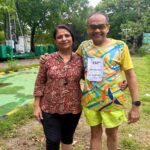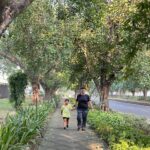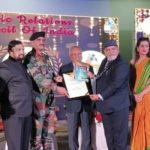“Physical disability is one of the major issues faced in old age”
Healthy soch
New Delhi, 22 March 2019:
Recent research shows that in India, there has been an increasing feminisation of disability conditions, in absolute and relative terms; elderly women spend more years of life in a disabled condition than Indian men do. The prevalence rate is much higher among widowed women, and the poor and the illiterate elderly. In addition, people with diabetes have a higher chance of being disabled.
As per the World Bank data on the total number of persons with disabilities in India, the number stands between 40 and 80 million. Disability research has not gained momentum in the country. A challenge for systematic research is the lack of appropriate data. Despite censuses and surveys collecting information, there is hardly any consensus on the real burden of disability, especially among the elderly.
Speaking about this, Padma Shri Awardee, Dr KK Aggarwal, President, HCFI, said, “Heart disease, dementia, diabetes, arthritis, cataract, sleep problems, depression, anxiety are some of the common health conditions prevalent in the elderly. And, most of these conditions co-exist, giving rise to polypharmacy, which has its own associated set of problems. In addition to these are the issues of disability, financial insecurity, isolation, loneliness, neglect. Left alone at home, they are also exposed to crime. From being usefully occupied for most part of their lives, they find themselves with plenty of time on their hands post-retirement. Hence, the challenges are not just health related but also economic and social. This is a vulnerable group and need to be looked after. They can still contribute to the society. By neglecting them, we are losing out on their skill and years of experience.”
A study by authors, from Stanford University School of Medicine, published in the Archives of Internal Medicine has shown that being active reduces disability and increases survival. Research indicates that older runners live longer and suffer fewer disabilities than healthy non-runners. This observation applies to a variety of aerobic exercises, including walking.
Adding further, Dr Aggarwal, who is also the Group Editor-in-Chief of IJCP, said, “One should take lessons from Yudhishthir in Mahabharata who walked till his death. However, a word of caution: if an elderly is walking or entering into an exercise program, he or she should have a cardiac evaluation done to rule out underlying heart blockages.”
“Article 41, a Directive Principle of State Policy, provides that the State shall, within the limits of its economic capacity and development, make effective provision for securing the right of public assistance in cases of old age. The Maintenance and Welfare of Parents and senior Citizen Act, 2007, also known as “Senior Citizens Act” explicitly states that it should be the duty of the children to maintain their parents.” (Press Information Bureau, October 1, 2015).
“Forget me Not” is a campaign proposed by the Indian Medical Association (IMA) for the elderly population enabling them to lead a healthy and productive life with dignity. Doctors need to be trained to take care of the special needs of the older people. As doctors, we should not only provide them medical care, but also be a support to them.
healthysoch







